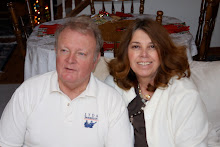Hello Fellow 615 Classmates in Graduate School of the English Department at CSU Pueblo,
To start out with I am late,as I thought the time frame was for tonight at midnight. I am also confused. We have an extensive reading assignment on line regarding French Marx theory? Are we supposed to do anything with that--I read it but it appears that our assignments for this blog center on Conley 1-28 and Matsen-1-160. Is that everyone else's understanding?
But getting on with it.
I like that Aristotle, in Conley's writing,viewed knowledge as a plurality of theoretical, practical and productive ideas. Whether arguments are based on universal premises or personal opinions is not important to Aristotle, as is was to Plato. Rather than simply looking at the power of a persuasive argument to be the meat and soul of an argument or rhetoric, he expanded it to look at a question of perceiving the available "persuasives" (14). He was able to conceive of composition, as having many elements including style,form and use of metaphor that created great rhetoric. It is not beyond question and it is not necessarily delivered only by those handsome and healthy or any other artifice, so personally evaluated. Ideas are embraced rather than limited. Art and beauty takes their place alongside knowledge, as ways of apprehending a subject.
I also thought that it was interesting in the writing of Matsen, how Sophists were viewed as prioritizing rote knowledge and written argumentation over that of oratory. Moreover, I was fascinated that oratory as a purpose was seen at one point primarily concerned with patriotism and at other points with as a focus of words and human affairs(43. It brought me back to when I first started having to write lengthy persuasive court reports. I also had to present oral testimony. Both forms of rhetoric involved factual events that led to a conclusion and recommendation, which could returning children or terminating parental rights. Lawyers would present their own oratory and questions but I also had a role in turning aside their questions, accusations and inquiries with my steadfast beliefs based on facts. This background certainly helped me to formulate convincing argumentation, in a much more vital way than those involved in scholarly discussions. The discussion on the role of forensics and investigation as oratory was fascinating as to how the truth can seen in different ways, as can guilt and responsibility. It shows that rhetoric is indeed a serious subject worthy of much thought and discourse, as it has in fact been over the ages.
The idea that Aristotle suggests of an orator projecting moral character, which lends persuasiveness to the argument through confidence was also interesting. As I have watched attorneys waging arguments, their confidence can be confusing, so one must listen very closely to the words and nuances they use. Particulars and universals may be mired in forensics in such a way that the truth is not easy to determine. I am with Aristotle, as both can be important in rhetoric in proofs and determining truths. The discussion on signs and later on metaphors and their roles in oratory w"as also fascinating. How many movies have we all watched that proclaim it is a sign", yet may be a valid part of knowledge building or a fallacy, among a number of possible sources of fallacies (125). A sense based metaphor related to beauty is an interesting idea as well, and apparently was seen by Aristotle as integral to effective rhetoric, along with epithets, which may might well be associated with something undesirable or appalling even (160). I think that these ideas are important to recall, as we move forward in writing and reading effective rhetoric, as there is a distinct ring of truth in them.
(14) Conley, Thomas. Rhetoric in the European Tradition. Chicago: University of Chicago Press, 1994.
(43,125,160) Matsen, Patricia P., Rollinson, Philip & Sousa, Marion, eds. RReadings from Classical Rhetoric. Carbondale, Ill.: Southern Illinois University Press,1990.
Linda Daly
Sunday, August 30, 2009
Subscribe to:
Comments (Atom)



